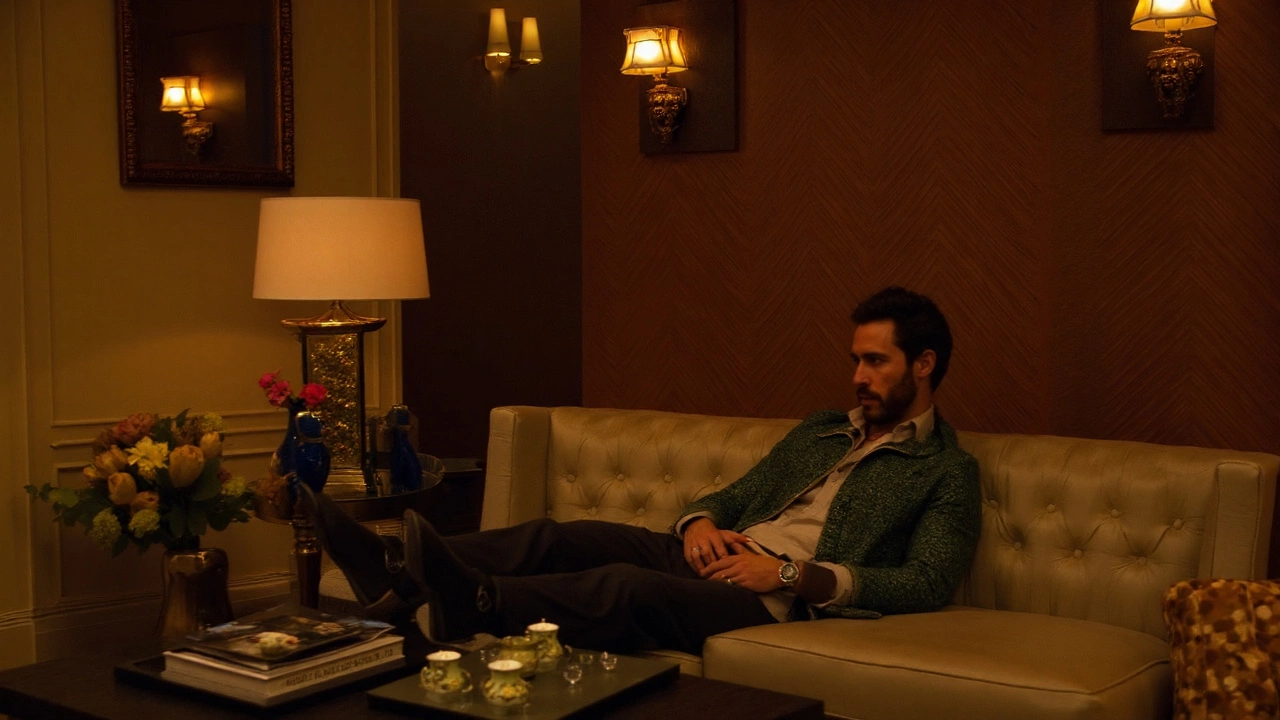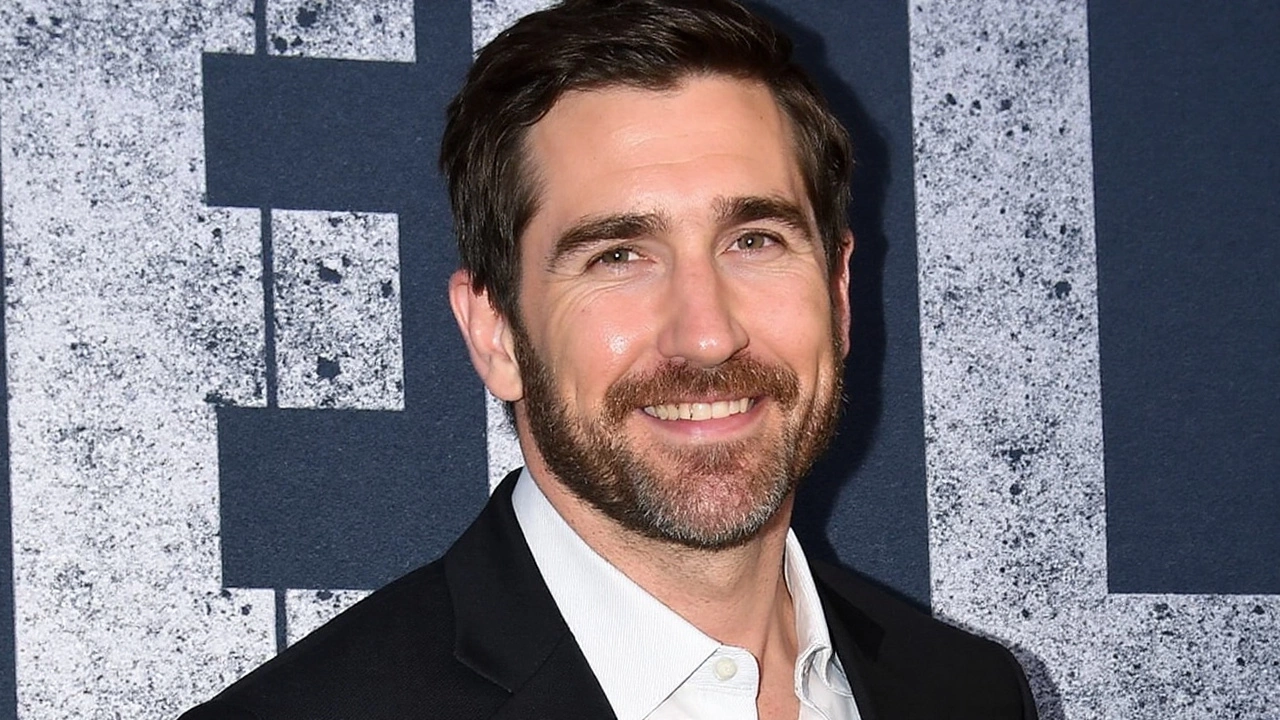‘Everest’ storms back: a mid-2010s hit finds a second summit on streaming
A 2015 mountain disaster drama just muscled into Top 10 lists in more than 15 countries, and it stars Jake Gyllenhaal. Baltasar Kormákur’s ‘Everest’ is suddenly one of the most-watched titles on HBO Max in multiple international markets, while U.S. viewers can stream it free on Tubi. Not bad for a film nearing its 10-year milestone—especially one that already banked $203 million worldwide on a $55 million budget and drew a 73% critics score and 68% audience score on Rotten Tomatoes.
The timing is convenient. Gyllenhaal just wrapped Guy Ritchie’s new action project ‘In the Grey’, putting his name back in the news and nudging curious viewers toward his back catalog. At the same time, a fresh round of licensing reshuffles has moved a stack of mid-2010s studio films onto new services. ‘Everest’ landed in a sweet spot: easy access (free with ads in the U.S., subscription in many other countries), big-screen spectacle that still pops on a home setup, and a true story that’s tough to shake once you’ve watched it.
‘Everest’ dramatizes the infamous 1996 Mount Everest disaster, when a fast-building storm slammed the mountain on May 10 and left eight climbers dead within roughly 24 hours. The film focuses on two commercial teams: Rob Hall’s Adventure Consultants and Scott Fischer’s Mountain Madness. It tracks the choices, delays, and oxygen problems that snowball into a crisis as the weather turns. The core tension isn’t just the mountain; it’s the clock, the traffic jam near the summit, and the thin margin for error above 8,000 meters.
Jason Clarke anchors the film as Rob Hall, the veteran New Zealand guide whose caution and care for clients meet the harshest possible test. Gyllenhaal brings a looser, charismatic energy to Scott Fischer, a climber with a daredevil reputation who still understands that ambition and altitude can be a lethal mix. Josh Brolin plays Beck Weathers, the Texas pathologist whose near-fatal ordeal became one of the most astonishing survival stories from that day. Keira Knightley appears as Jan Arnold, Hall’s wife, grounding the film with real stakes beyond the summit. Emily Watson, Robin Wright, and Sam Worthington round out a sharp ensemble, with Worthington portraying guide Guy Cotter, a crucial voice on the radio as conditions unravel.
Kormákur resists flashy heroics. Instead he builds dread with altitude realism: the constant cold, the clipped breath, the way radios stitch together a crisis that nobody can see all at once. The production leaned on real locations and punishing shoots to avoid turning the mountain into CGI wallpaper. The result is a drama that feels tactile—heavy jackets, whiteouts, and face shields that fog at the worst time—rather than a glossy disaster reel.
It’s also a film that benefited from scale. ‘Everest’ opened first in IMAX 3D before its wide rollout, where it played like a throwback: big, physical, and built for a cavernous screen. That early IMAX push helped the film break out internationally in 2015. The same DNA now works for living rooms. On modern TVs, the visual contrast—bright prayer flags, black rock, blistering white—plays cleanly, and the height exposure scenes still make palms sweat.
The story remains polarizing in the climbing community, and the film nods to that debate. Was the tragedy a failure of planning, a victim of crowding at the top of the world, or a terrible storm arriving at the worst moment? ‘Everest’ threads multiple viewpoints without tilting into a single answer. It borrows details widely reported at the time and across survivor accounts, including Beck Weathers’ own retelling. The movie’s choice to stay close to the radio chatter and the delayed fixes on the route makes the disaster feel like it’s unfolding in real time.
So why the resurgence now? A few reasons line up. Survival thrillers have a long streaming tail because they’re easy to recommend: you either want to know how they make it down—or why they don’t. The film’s ensemble cast keeps it evergreen in algorithm land; any spike in interest for Gyllenhaal, Brolin, or Knightley tends to boomerang viewers back to it. Availability matters too. Free, ad-supported platforms like Tubi reduce the commitment for new viewers, while subscription services push the title to the front page when it starts catching fire in one territory. Once it’s trending in Spain or Brazil, the recommendation engines do the rest.
There’s also a broader appetite for mountain stories right now. In recent years, climbing films and docs—think ‘Free Solo’, ‘The Alpinist’, and ‘14 Peaks’—have trained audiences to accept rope jargon and altitude stats without tuning out. ‘Everest’ sits at the crossroads: it’s a studio drama with stars, but it keeps the climbing details honest enough that it doesn’t feel like a theme-park ride. That helps it play for both the weekend crowd and the gearheads who know what a fixed rope line means at 28,000 feet.
The numbers back up the interest. With $203 million worldwide during its original run, ‘Everest’ was a financial success in theaters, particularly strong overseas and in premium formats. The Rotten Tomatoes split—high 60s to low 70s—fits a pattern you often see with muscular true-story dramas: solid craft, debate over emphasis, and a third act that hits hard. On streaming, the film’s recent performance puts it among the most-watched movies on HBO Max in more than 15 countries, a rare late-career spike for a 2015 title that isn’t attached to an ongoing franchise.
The cast helps the rediscovery feel fresh. Clarke’s measured portrayal of Hall avoids melodrama, and the film gives him quiet, devastating moments that land without speechifying. Gyllenhaal’s Fischer has swagger but also weariness—a climber who knows he’s bargaining with the mountain every hour. Brolin’s turn as Weathers is blunt and physical, and the late-film beats tied to his family, including Robin Wright’s key scenes, hit with a jolt that tends to kick off word-of-mouth. Knightley and Emily Watson, mostly grounded at sea level, make the phone calls and radio check-ins feel like lifelines, not plot devices.
With the 10-year anniversary on the horizon, expect a wave of reappraisal. Studios and streamers often time promotions around clean milestones, and ‘Everest’ is built for that. It’s star-driven, rooted in a well-documented event, and polished enough to feel modern without the bloat that can sink true-story epics. More people are discovering it now for the first time, which means the cycle of recommendations—texts to friends, a slot on a weekend watchlist—has started up again.
There’s a simple reason this one endures: it respects the risk. The film shows how small errors stack up when the air runs thin, and how even the best guides can’t out-negotiate the jet stream. That honesty, paired with a cast that treats the stakes like life and death rather than mythology, makes it an easy add on a Friday night when the couch is calling and the weather on TV looks safer than the weather on the roof of the world.

Where to watch and what to know now
Right now, viewers in the United States can find ‘Everest’ on Tubi, free with ads. Internationally, it’s trending on HBO Max across a wide swath of markets. If you missed the theatrical run—or if you only caught it on a plane—this is one of those films that rewards a decent screen and a quiet room. The audio mix, from the groan of shifting ice to the clipped radio calls, does a lot of storytelling without asking you to notice it.
For anyone coming in cold to the 1996 story, the basics help: climbers from competing guided groups team up on summit day; delays stack up at the Hillary Step; oxygen supply and weather windows tighten; a fast-building storm makes the descent a fight for survival. Real people—Rob Hall, Scott Fischer, Beck Weathers—bear real names, and the film treats that responsibility with care. If it sends you down a rabbit hole for documentaries, interviews, and survivor accounts afterward, that’s part of its lasting pull.
And yes, the latest Gyllenhaal headlines don’t hurt. Any new project from him tends to boost older titles, from war dramas to thrillers. ‘Everest’ benefits more than most because it sits at the intersection of star power and a story that keeps sparking conversation. That’s how a mid-2010s theatrical success ends up climbing back into the present day—one recommendation, one territory, one stormy night at a time.
